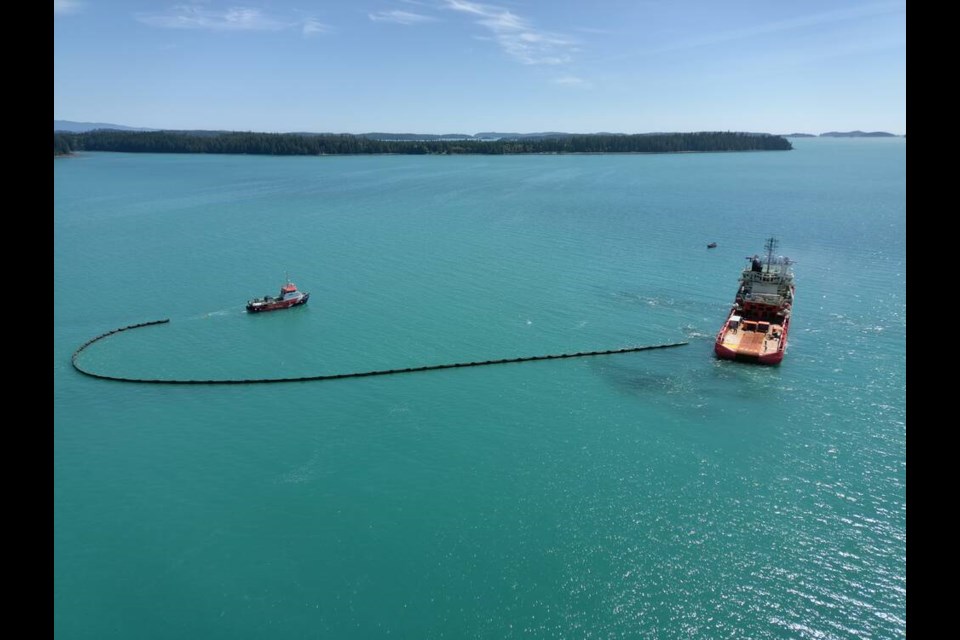A Canadian Coast Guard team spent the weekend on a spill response exercise off the coast of Ucluelet.
On the emergency tow vessel Atlantic Eagle, the coast guard tested new technologies and ran through scenarios for cleaning a large vessel in the event of an oil spill. It worked in partnership with the Western Canada Marine Response Corporation.
“Marine training exercises are an opportunity for us to practise a scenario with response partners like WCMRC, and then apply lessons learned to any potential future real life situations,” Canadian Coast Guard spokesperson Kiri Westnedge said in a statement.
The exercise included testing of a Mobile Incident Command Platform on board Atlantic Eagle, the deployment of offshore containment booms, and the a test livestream of water video to the incident command post.
“By working together, we can help to ensure the safety of mariners and protect British Columbia’s marine environment for all Canadians,” Westnedge said.
While the coast guard provided the main vessel for the spill response exercise, the Western Canada Marine Response Corporation is the primary response organization for B.C. if there’s an oil spill.
The company has been involved in oil spill cleanups on the west coast of B.C. since 1976 and has been owned by oil companies such as Imperial Oil, Shell Canada, Chevron and Suncor for most of its existence.
In 2015, Kinder Morgan’s Trans Mountain pipeline owned 50.9 per cent of the shares.
After the federal government purchased Trans Mountain pipeline, the oil companies now only own 20 per cent of the shares.
Western Canada Marine Response Corporation in recent years has invested millions into oil spill response bases on Vancouver Island, including at Ucluelet, in anticipation of the Trans Mountain pipeline expansion project.
The corporation, which has close to 90 vessels and 200 full-time employees, says it is prepared to respond to a spill on the south coast within six hours, and within two hours in waters off the Lower Mainland.



